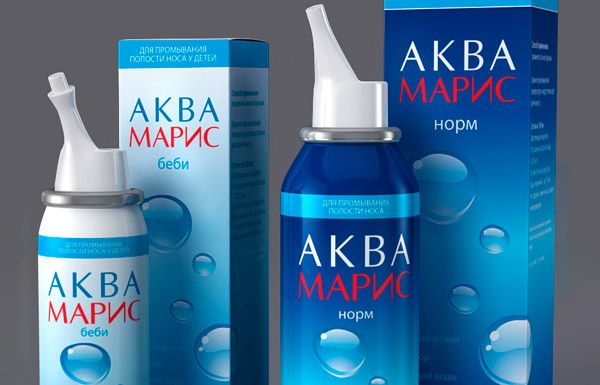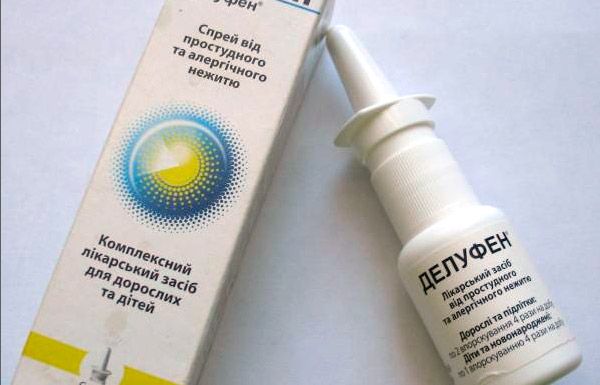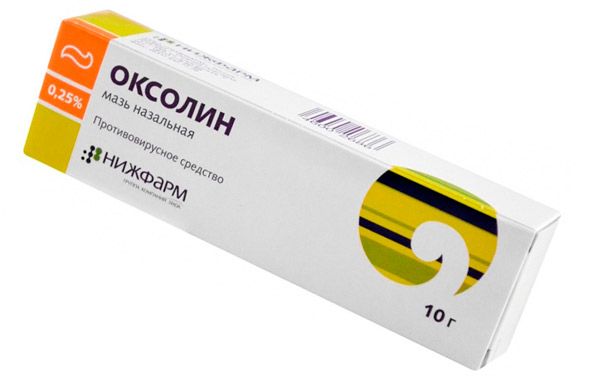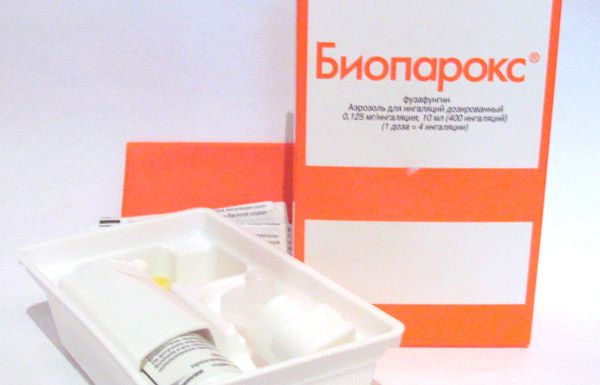Medical expert of the article
New publications
How to treat runny nose in pregnancy?
Last reviewed: 06.07.2025

All iLive content is medically reviewed or fact checked to ensure as much factual accuracy as possible.
We have strict sourcing guidelines and only link to reputable media sites, academic research institutions and, whenever possible, medically peer reviewed studies. Note that the numbers in parentheses ([1], [2], etc.) are clickable links to these studies.
If you feel that any of our content is inaccurate, out-of-date, or otherwise questionable, please select it and press Ctrl + Enter.
Often expectant mothers are concerned about the question: "How to treat a runny nose during pregnancy?" It is common knowledge that many medications are contraindicated for women "in position". But letting the situation slide is also dangerous, because difficulty breathing during pregnancy due to a runny nose can provoke oxygen starvation of the fetus. In addition, breathing through the mouth due to nasal congestion is undesirable due to the possible penetration of infection into the pregnant woman's body.
The fact is that the nose performs the function of a kind of "filter", protecting the body from harmful microorganisms getting in. Therefore, it is so important to diagnose the pregnant woman in time and as quickly as possible to effectively treat the disease that has arisen, the symptom of which is a severe, debilitating runny nose.
A runny nose during pregnancy causes a feeling of apprehension in expectant mothers, because this symptom signals health problems that can negatively affect the intrauterine development of the fetus. Even a common cold, the first symptom of which is a severe runny nose, can have very unpleasant consequences for the unborn child.
Treatment of a runny nose in pregnant women is most often complex. In general, the doctor prescribes both safe medications (usually herbal) and other treatment methods to the expectant mother.
Vasoconstrictor drugs should be used with special caution, as many of them cause side effects. The safest are considered to be sprays, ointments and drops of natural origin, for example, Euphobrium Compositum, Pinosol, Evamenol, etc. You can use drops prepared at home on the basis of medicinal herbs: chamomile, calendula, Kalanchoe, aloe, etc.
A number of procedures for a runny nose will help to effectively get rid of this symptom. Among the most common of them are:
- inhalations of herbal decoctions (help to moisturize the nasal sinuses, reduce the amount of mucus secreted);
- warming up the nasal sinuses with salt;
- rinsing the nose with freshly squeezed juice of plants that have antiviral and antibacterial effects (onion, aloe, garlic);
- acupressure in the sinus area;
- frequent ventilation of the room and humidification of the air, etc.
Remedy for a runny nose during pregnancy
Rinsing and regular moisturizing of the mucous membrane cope well with a runny nose and nasal congestion. Baby cream, Vaseline, and vegetable oil are used for moisturizing. Modern sprays with a moisturizing effect, made on the basis of healing sea water, are safe for pregnant women and at the same time very effective: Aquamaris, Aqualor, etc. If there is no humidifier in the house, small containers with water, which should be placed around the room in different places, will do instead.
Sleeping on a high pillow can help ease breathing at night. This body position can reduce nasal congestion and reduce swelling of the mucous membrane. Consequently, a pregnant woman will be able to rest normally.
A runny nose during pregnancy should not go unnoticed, and if after various procedures at home the condition of the pregnant woman has not improved, but only worsened, an urgent visit to the doctor is the only correct way out. It is necessary to always remember that the expectant mother is responsible, first of all, for the little life under her heart.
A runny nose during pregnancy always causes a lot of inconvenience and discomfort to expectant mothers. In addition, this symptom indicates health problems, so it should be taken very seriously, without delaying the process and without postponing a visit to the doctor. A severe runny nose can cause the development of a viral disease, especially if it is accompanied by other unpleasant symptoms, such as cough, pain and sore throat, fever, etc. It should be noted that with the onset of the cold season, most pregnant women are at risk of developing acute respiratory diseases against the background of decreased immunity. Alarming symptoms of flu or colds most often begin with a runny nose. The risk group includes women who were often exposed to colds before pregnancy.
The number one remedy for a runny nose during pregnancy is vasoconstrictor drops. This is what expectant mothers resort to first when they discover a runny nose. However, it is worth remembering that many vasoconstrictors are contraindicated during pregnancy, and their use by women "in position" is strictly prohibited due to possible risks and complications for the baby. Treatment of a runny nose in a woman carrying a child must fully comply with the doctor's instructions, who, taking into account all possible risks, will select a drug that best meets the criteria of effectiveness and safety. Of the vasoconstrictors, expectant mothers are usually prescribed drops and sprays based on sterile sea water, which cleanses the nasal passages well. It is better to give preference to homeopathic remedies that have a natural basis, for example, such as Pinosol, Evamenol, Euphorbium compositum.
Essential oil is a good remedy for nasal congestion and runny nose. You can do inhalations with the addition of essential oils (menthol, eucalyptus, mint). Special solutions of medicinal herbs (chamomile, calendula, sage, plantain) also give an excellent effect, with the help of which the procedures for washing the nasal sinuses are carried out.
It is difficult to immediately answer the question of which remedy for a runny nose during pregnancy is the best. Everything depends on the specific case, as well as the main reasons for the development of rhinitis in a pregnant woman. Based on this, the treatment should be prescribed by a doctor after a thorough examination of the patient and an accurate diagnosis of the disease.
Nasal drops during pregnancy
A runny nose during pregnancy can have different origins. Only a doctor can determine the main reasons for its development. However, many women, trying to alleviate the condition, resort to such a common and familiar remedy for a runny nose as drops.
In principle, nasal drops can be used during pregnancy, but not all of them. For example, vasoconstrictor drops can cause harm, since their effect can extend to the vessels not only in the nose, but also in other organs, including the capillaries of the placenta. The result of such a process can be oxygen starvation of the fetus, which, in turn, will affect its further development. Vasoconstrictor drops are strictly contraindicated for expectant mothers who have a regular increase in blood pressure. Only in extreme cases, with very severe nasal congestion, is it permissible to use nasal drops, but preferably those that are allowed for children, and better once before bedtime: Nazik-spray, Rinzolin, Vibrocil, Nazivin, etc. The use of such drops is permissible only in the dosages prescribed by the doctor and for no more than 3-4 days in a row, since such drugs are often addictive.
Choosing drops for a runny nose in pregnant women is a very responsible matter. For example, drops such as Galazolin and Naphthyzinum can be prescribed by a doctor only in rare cases when a woman cannot breathe at all due to severe nasal congestion. The dosage of such drops should be strict: no more than 1-2 drops at a time. With prolonged use of vasoconstrictor drops, a pregnant woman may experience a disruption of blood supply and narrowing of the placental arteries. In addition, such drops contribute to increased swelling of the mucous membrane.
Nasal drops during pregnancy are safer if they have a plant base, for example, Pinosol. This drug copes well with infectious rhinitis, but is contraindicated in case of an allergic reaction to the essential oils it contains: mint, eucalyptus and mountain pine oil. Other homeopathic drugs that help quickly get rid of an annoying runny nose include Evamenol ointment and Euphorbium Compositum spray.
An effective way to quickly get rid of rhinitis is frequent nasal rinsing. For this purpose, a saline solution (physiological solution) is used, which is best bought at a pharmacy, as well as drops and sprays made from sea salt and sea water: Aquamaris, Dolphin, Humer, Saline, etc. For rinsing the nose, you can also use herbal decoctions: sage, chamomile, calendula. Drops from freshly squeezed aloe or Kalanchoe juice are the most common folk method for treating a severe runny nose.
It is better to treat a runny nose during pregnancy with folk remedies and methods, and only if the desired effect is absent should medications be used strictly as prescribed by the attending physician.
Nasal spray for pregnancy
A runny nose during pregnancy as a symptom of an emerging disease requires immediate treatment to avoid possible complications and negative consequences for the unborn child. Most often, a pregnant woman is recommended to start treating a runny nose with folk remedies that are as safe as possible for the health of the expectant mother and her baby. However, modern medicine offers unique drugs containing natural ingredients that are in great demand among pregnant women and are effective in treating colds and various forms of rhinitis.
A nasal spray during pregnancy should be selected by the attending physician depending on the type of runny nose and the reasons for its occurrence, as well as taking into account the general condition of the pregnant woman. Today, preference is given to nasal sprays made from sea water. One of such modern drugs is a spray called "Aqua Maris". It contains water from the Adriatic Sea, which has effective healing properties due to the content of microelements and a whole complex of natural minerals. The safety of this product lies in the fact that it does not contain any preservatives, chemicals or synthetic additives. This spray can be safely used even at the very beginning of pregnancy.
Natural ingredients contained in Aqua Maris spray help to gently liquefy nasal mucus and normalize its production. Thanks to this drug, bioactive substances (immunoglobulins, interferons, lysozyme, etc.) are actively produced in the nasal mucosa, which effectively strengthen local immunity. Regular rinsing of the nasal passages with Aqua Maris spray protects the nose and nasopharynx from the penetration of microbes, pathogenic bacteria, dangerous viruses, and also facilitates nasal breathing of a pregnant woman with a severe runny nose.

The Aqualor series of nasal products is popular and effective today, and is absolutely safe in its composition for pregnant women. In addition to drops for a runny nose, sprays for the safe treatment of chronic, atrophic, allergic and other types of rhinitis are produced under the name "Aqualor". The preparations are made on the basis of the healing sea water of the Atlantic Ocean and have several varieties depending on the situation:
- Aqualor Norm - used in the treatment of allergies, nasopharyngeal diseases of an infectious and inflammatory nature, recommended for daily irrigation of the nasal cavity for the purpose of cleansing and thorough moisturizing;
- Aqualor Forte – used for severe nasal congestion, acute and chronic rhinitis;
- Aqualor Soft is effective for nasal congestion and excessive dryness, allergic rhinitis, and is suitable for daily hygiene procedures associated with cleansing the nose and oral cavity;
- Aqualor Extra is a spray with enhanced action.
The amazing properties of sea water help to relieve swelling of the nasal mucosa, soften and painlessly separate crusts. Sea water washes out pathogenic microbes and harmful microorganisms from the nasal cavity well.
It should be noted that nasal sprays are easy to use and remain sterile throughout the entire period of use. Spray cans are equipped with special nozzles, thanks to which the stream of medicine is directed strictly along the anatomical contours of the nasal passages.
A nasal spray for pregnancy should, first of all, be safe and reliable. For example, Aqualor is recommended for pregnant women with colds, seasonal exacerbations of chronic rhinitis, and allergic rhinitis. The spray contains purified sea water without any impurities or additives, which is very important when used by expectant mothers. The spray is easy to use thanks to a special dispenser. Aqualor copes well with nasal congestion, runny nose, dry mucous membranes, and gently removes crusts in the nose. More effective in treating runny nose in pregnant women are considered to be the varieties of the drug Aquamaris - spray "Aquamaris strong", which contains a hypertonic solution of sea salt (with a high percentage of sodium chloride), and "Aquamaris for the throat", which is effective for pharyngitis, exacerbation of chronic tonsillitis, as well as other diseases of the nose with pronounced catarrhal symptoms.
Among other drugs that are designed to effectively treat a runny nose and are safe for pregnant women, homeopathic sprays can be singled out. One of the best in our time is considered to be the Delufen spray, which contains extracts of medicinal herbs (black mustard, loofah, pasqueflower, milkweed). The spray has a very pronounced anti-inflammatory and anti-allergic effect on the nasal mucosa: it quickly eliminates itching, burning, swelling, relieves nasal congestion and reduces nasal sensitivity to various allergens and irritants. In addition, Delufen spray has protective properties. Having a beneficial effect on the mucosa, it eliminates the inflammatory process, frees the nasal passages from mucus and restores nasal breathing. Delufen spray also has an active antimicrobial effect, normalizes the biocenosis of the nasal mucosa and increases its immunity. The main indications for the use of Delufen are sinusitis of various etiologies and forms.
Before using Delufen spray, a pregnant woman should consult with her doctor, since information regarding possible risks resulting from taking this drug has not yet been registered.

Runny nose during pregnancy is well treated with another drug from a German manufacturer - Euphorbium Compositum. The nasal spray is widely used to treat both acute and chronic forms of rhinitis and sinusitis in pregnant women. It has a stimulating effect: it relieves the feeling of tension in the nasal area and eliminates dry mucous membranes. It should be noted that Euphorbium acts very slowly (the maximum manifestation of the therapeutic effect is observed on the third day of administration), but the effect, compared to vasoconstrictor drops, is quite long-lasting. Euphorbium Compositum spray should be used by expectant mothers only as prescribed by the attending physician in the doses prescribed by him. Reviews of this drug, both from medical specialists and from pregnant women, are very positive.
Ointment for a runny nose during pregnancy
A runny nose during pregnancy is one of the first symptoms indicating the possibility of a viral infection entering the body. Of course, there may be other causes of rhinitis, but most often this symptom is associated with seasonal epidemics of colds and flu. Pregnant women, who have a decrease in the body's immune forces, are especially susceptible to infection with ARVI. To treat a runny nose and the main reason for its development during pregnancy, it is necessary to choose only those drugs that will not have a negative impact on the development of the fetus. Basically, expectant mothers are prescribed homeopathic nasal drops, sprays or ointments that do not contain components prohibited during pregnancy.
The ointment for a runny nose during pregnancy, most often used for viral and colds, both for therapeutic and prophylactic purposes, is oxolinic. The mechanism of the main action of this drug involves oxolin, a substance that reduces the activity of influenza viruses, adenovirus, and herpes. Thanks to oxolin, the infection is retained in the upper respiratory tract and does not penetrate deeper into the body.
The procedure for using oxolinic ointment is quite simple: it is applied in a thin layer to the nasal mucosa. A pregnant woman should apply this ointment every time she leaves the house to places with a large crowd of people, where the risk of contracting the virus increases. During the cold season, for the purpose of prevention, it is enough to apply oxolinic ointment twice a day. To treat a runny nose of viral etiology, the drug should be used three times over several days.
There are generally no contraindications to the use of oxolinic ointment by pregnant women. In case of sensitivity to oxolin, the active substance of the drug, a burning sensation in the nose may occur. However, due to the fact that medical studies on the presence or absence of negative effects from this ointment in pregnant women have not been conducted, it is impossible to claim that the drug is absolutely safe. In any case, a doctor should prescribe oxolinic ointment to a pregnant woman, taking into account all the benefits of using the drug, since the chances of contracting the virus in an organism weakened by pregnancy are too high.

Many medical experts recommend using homeopathic ointment for a runny nose during pregnancy, which contains useful plant extracts. One of the most common ointments is "Doctor Mom" - a herbal preparation made from a complex combination of nutmeg, turpentine and eucalyptus oils, menthol, camphor, thymol and petroleum jelly. Penetrating deep into the skin, the active components of the ointment "Doctor Mom" destroy microbes and harmful microorganisms, effectively relieve inflammation and help improve the general condition of the pregnant woman: restore breathing, relieve rhinitis, get rid of other cold symptoms.
The ointment with anti-cold action Evamenol has proven itself well, which is very effective in treating runny nose in pregnant women. The active components of the ointment (menthol extract and eucalyptus oil) have a complex effect on the infection, providing an analgesic, anti-inflammatory and antiseptic effect. Thanks to this effect, well-being is significantly improved in case of nasal congestion, colds, sinusitis.
The use of Evamenol ointment is carried out by applying it in small quantities to the nasal mucosa several times a day for a week. Due to the local effect of this drug, the risk of its impact on fetal development is significantly reduced.
Chronic runny nose during pregnancy is effectively treated with homeopathic ointment Thuja, which contains thuja shoots, propolis, linseed, palm and eucalyptus oil, as well as chamomile extract. The ointment is applied to the nostrils twice a day for several weeks.
Fleming's ointment is used to treat various types of rhinitis in pregnant women. It contains microelements such as glycosides, carotenoids, anethole, alphalinene, cineole, menthol, and has an antibacterial effect. Using a cotton swab, the ointment should be applied to each nostril from the inside twice a day. Fleming's ointment increases local immunity and improves microcirculation.
Asterisk for a runny nose during pregnancy
A runny nose during pregnancy is a symptom that can be caused by a number of reasons: allergies, hormonal changes in the female body, colds. For a runny nose caused by a cold or a virus, many use an effective remedy known since Soviet times - the Vietnamese balm "Zvezdochka". In addition to the pronounced anti-cold effect, the ointment has other properties: it relieves itching and inflammation from insect bites, eliminates headaches, and treats skin rashes.
Zvezdochka for a runny nose during pregnancy is a safe remedy that is used to relieve unpleasant cold symptoms and ease breathing with a stuffy nose. With regular use, the ointment can quickly relieve rhinitis. The procedure for using Zvezdochka is as follows: a small amount of ointment must be applied to the skin around the nose (the outer side of the wings of the nose) and rubbed in thoroughly.

The miraculous composition of "Zvezdochka" includes essential oils (eucalyptus, clove, mint, cinnamon) and petroleum jelly. Due to the irritating effect of the balm, itching is reduced, blood flow at the site of application is increased, and pain symptoms are relieved. Before using "Zvezdochka", a pregnant woman should consult a doctor, since some people have individual contraindications to the balm. To determine the presence or absence of an allergic reaction to the components of this drug, you should apply a small amount of balm to the skin, for example, to the wrist, and observe the reaction. If an allergy in the form of redness and itching does not appear, the balm is absolutely safe for use. When applying the balm to the nose, you must be careful not to get it in your eyes, and do not lubricate the mucous membranes with the ointment to avoid burns.
Zvezdochka for a runny nose during pregnancy is one of the most proven methods of treating rhinitis and quickly eliminating cold symptoms, so if necessary, the ointment can be used by expectant mothers, but only after an allergy test and consultation with a doctor.
Bioparox for runny nose during pregnancy
A runny nose during pregnancy should be treated only with those methods and medications that will not cause any trouble or negative consequences for either the pregnant woman or her baby. Indeed, in many cases, medications are strictly contraindicated during pregnancy, so if any symptoms of a cold or allergic disease occur, accompanied by a severe runny nose, the expectant mother should immediately consult a doctor who will prescribe the optimal treatment depending on the causes of the development of a particular disease.
Bioparox for a runny nose during pregnancy is one of the most effective drugs used to treat various infectious and inflammatory diseases (acute rhinitis, sinusitis, tracheitis, pharyngitis, bronchitis, tonsillitis, etc.), as well as fungal infections of the upper respiratory tract. Bioparox is a local antibacterial drug with pronounced anti-inflammatory activity. An advantageous advantage of its use during pregnancy is that the active substance of the antibiotic is not absorbed into the bloodstream, since it does not have a systemic effect on the body. However, scientific clinical studies on the possible risks of taking this drug for pregnant women and intrauterine fetal development have not been conducted, so Bioparox cannot be considered an absolutely safe remedy. Whether to take the drug or not is the woman's own decision, but she should also listen to the opinion of a medical specialist who will realistically assess the situation and draw a conclusion about the need or undesirability of taking Bioparox in a particular case.

Bioparox for a runny nose during pregnancy works as follows. The drug is taken in the form of inhalations through the nasal passages or mouth, depending on the treatment goals. The local action of the antibacterial drug is that it is localized on the mucous membrane of the respiratory tract and does not reach the bloodstream. A positive factor in using this drug is that the active substance of Bioparox, fusafungine, is concentrated only in places of inflammation and has the ability to penetrate even the most inaccessible areas - sinuses, as well as small bronchi. The antibacterial effect helps to reduce swelling of the nasal mucosa, eliminate signs of acute respiratory infections and colds (nasal congestion, rhinitis, sore throat, dry cough). The duration of treatment with Bioparox is determined by the attending physician, but according to the instructions, the drug must be taken for at least 7 days for optimal treatment results. But you should not take the antibiotic longer, otherwise it is possible that microorganisms will adapt to it, resulting in superinfection.
Side effects from taking Bioparox are extremely rare. Typically, such symptoms include a tingling sensation, burning, dryness in the nose and mouth, sneezing attacks, irritation of the nasopharynx, and allergic reactions. As for the method of using the antibiotic for a runny nose, Bioparox is prescribed to adults 2 inhalations in each nostril 3-4 times a day. It is recommended to clean the nasal passages beforehand. It is necessary to remember about disinfection and after each use of the drug, wipe the can and nozzles with an alcohol swab.
Of course, if you follow the instructions for this drug strictly and do not exceed its dosage, there should be no side effects as such. If a pregnant woman has a tendency to allergies or asthma attacks, it is better not to take risks and not use Bioparox to treat a runny nose.
Inhalations during pregnancy for a runny nose
Runny nose during pregnancy is recommended to be treated with the safest methods, in particular, those means that are effective and at the same time will not have a negative impact on the body of the expectant mother and her baby. For runny nose caused by colds and viral infectious diseases, inhalations are used, the action of which is aimed at improving the discharge of sputum from the nasal passages, clearing the sinuses of mucus, restoring nasal breathing.
Inhalations during pregnancy for a runny nose can be done only if the woman does not have a fever, since thermal procedures of any kind at an elevated temperature can provoke an even greater rise, and this is very dangerous for both the health of the expectant mother and her baby. Unfortunately, hyperthermia (an increase in temperature above 38 ° C) can provoke a miscarriage. You should not resort to treatment with inhalations if the expectant mother has heart problems.
For inhalations against a runny nose, infusions of medicinal plants (chamomile flowers, calendula, linden, eucalyptus leaves, plantain, coltsfoot, thyme, St. John's wort) are usually used. To carry out the procedure, 1-2 tablespoons of raw materials must be poured with a glass of boiling water. The inhalation procedure is carried out using a special device - an inhaler, or a shallow container. You need to bend over the hot infusion and deeply inhale the vapors. In this case, you can cover your head with a towel - this will make the effect even better. In case of nasal congestion and severe runny nose, you need to ensure that you inhale through your nose. Inhalation should last 4-10 minutes, after which the pregnant woman is not recommended to go outside or into a cool room, it is better to stay warm for some time. This is due to the fact that as a result of inhalation, the vessels of the respiratory tract expand, and exposing them to a sharp temperature change is dangerous.
Of course, it is better to do inhalations with the help of special devices - nebulizers (inhalers), since breathing in steam over a pot of boiling water is fraught with a large load on the heart, and also increases the risk of getting burns. The advantage of the inhalation system is that when evaporating, the water remains cold, i.e. getting a burn in this case is almost impossible. An inhaler can be purchased at a pharmacy, and there are several types of such devices:
- steam (work by heating water);
- compressor (steam is created under the influence of air flow);
- ultrasonic (water evaporation is achieved using ultrasound).
Before starting the inhalation procedure, it is necessary to make sure that the temperature of the prepared water is correct. It should be within 30-40 °C, but not more.
One of the effective folk methods is inhalation over steam from boiling potatoes in their skins. It is believed that whole potato skins contain useful substances that have a detrimental effect on microbes. It is recommended to repeat the inhalation up to 6 times a day, depending on the condition of the pregnant woman.
Inhalations with mineral water are very effective for a runny nose. For this purpose, it is recommended to choose Borjomi or other slightly alkaline water. The bottle must first be opened to release gases. Another ingredient suitable for inhalations for a runny nose is baking soda. For the procedure, 2-3 tablespoons of soda should be diluted in a liter of boiling water, and then use the solution prepared in this way for inhalations.
Inhalations during pregnancy for a runny nose can also be done using onions and garlic. To prepare the raw materials, pour one glass of boiling water over finely chopped onions and garlic, and then slowly inhale the released vapors containing active substances - phytoncides. Essential oils (mint, eucalyptus, menthol, tea tree oil), as well as herbal infusions, are excellent for inhalations for a runny nose. However, when using essential oils, you should also be especially careful, since pregnant women often have atypical, increased reactions to various substances. Since essential oils have a certain irritating effect, they can cause swelling of the mucous membrane and even spasms.
If there are no contraindications to the use of this method of treating a runny nose in a pregnant woman, then we can confidently say that inhalations are an effective and absolutely safe way to treat a cold runny nose during pregnancy! Of course, before starting to use inhalations, it is best to first consult with your doctor, who will confirm the correctness of this choice in treating a runny nose.
The question "How to treat a runny nose during pregnancy?" requires, first of all, a consultation with a doctor who will determine more gentle and at the same time effective methods of treatment, taking into account the causes of rhinitis in the expectant mother. For example, if a runny nose in a pregnant woman is accompanied by an increase in temperature, warming procedures are not recommended. You should also be careful when using "folk" nasal drops based on natural products, since some of them can provoke an allergic reaction.


 [
[